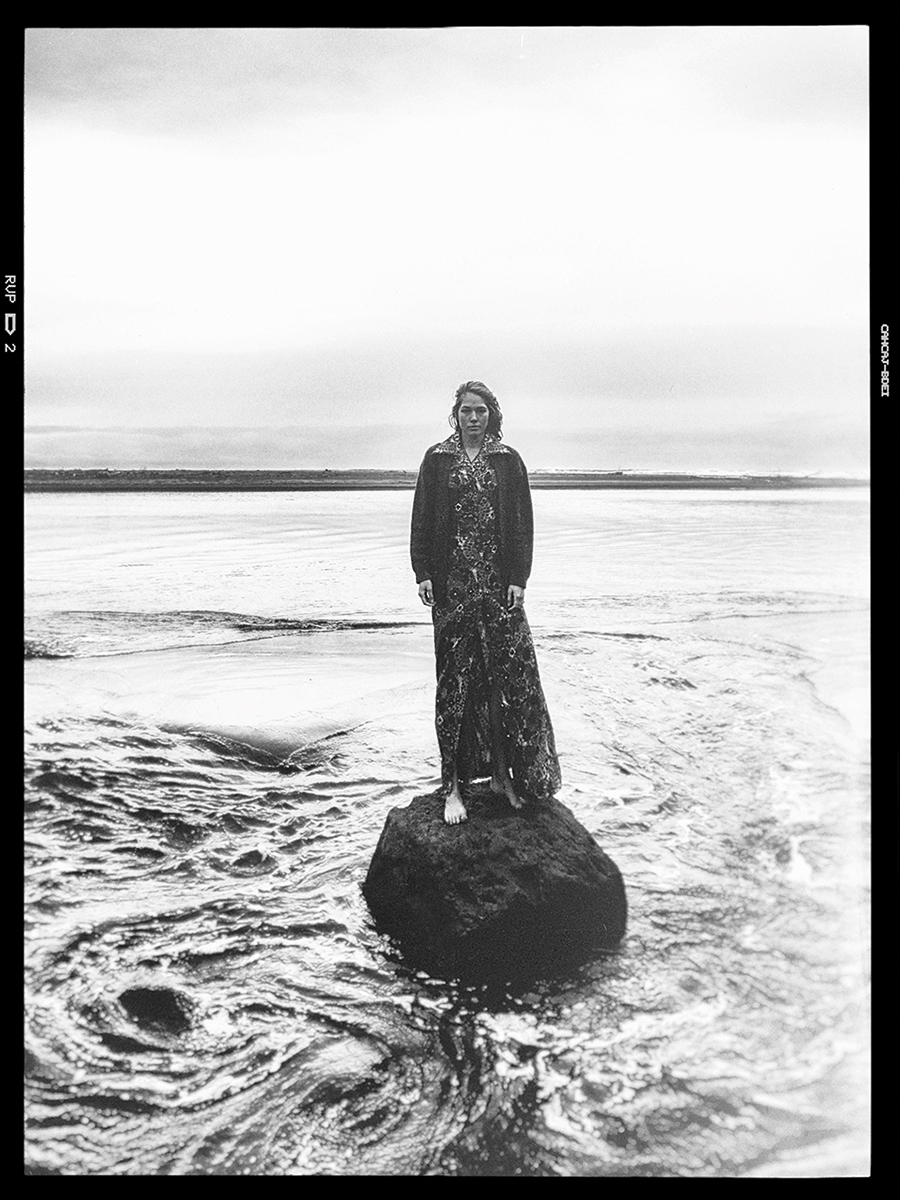Though only in his mid-40s, Damien Nikora has already lived several lifetimes. The photographer is one of New Zealand’s most respected creatives, known for his striking editorial and commercial campaigns in the fashion industry as well as the presence and intimacy of his portraiture and documentary work.
His career has seen him collaborate with national brands like Glassons and international behemoths like Victoria’s Secret, Kiwi artists Stan Walker and David Dallas, and carried him to all corners – from the Arctic Circle to rural Aotearoa.
Far from being a dream or calling, however, photography was something Damien mostly fell into while at school, the by-product of a beneficent teacher who instilled him with self-belief.
“I wasn’t really that gifted, but I think he was just super generous about his marks… and it made me believe I was really good.”
The remark is all the more heartwarming in light of Damien’s early life and the possibilities that could have awaited him if it weren’t for the influence of individuals like that teacher. Damien was born in Wellington, three months premature and with his intestines on the outside of his body. It was a life that as far from a fashion editorial as possible. His mother was a prostitute who worked on Vivian Street and would frequently disappear, leaving the children for days at a time in the care of her boyfriend, “an amazing man” who sheltered the children from the worst of the world that surrounded them.
When the family returned to New Zealand, Damien began carving out a space and a name for himself in an industry where “no-one even knew who the heck I was”.

When Damien was 11 years old, his grandfather introduced him to the Mormon church, beginning a religious relationship that would come to define the next 20 years of his life. This life was expectedly strict, but Damien relished its rigours and dictates, proud of the staunch convictions his faith demanded. After completing his mission to Australia aged 19, and marrying at 20, he returned across the Tasman with his wife and five-month-old son to work in the video game industry and as a freelance photographer. When the family returned to New Zealand, Damien began carving out a space and a name for himself in an industry where “no-one even knew who the heck I was”.
But for all the careers and countries and changes he’s had in life, the greatest came five years ago after watching the documentary The True Cost: “It snapped me out of this coma that I was in. I realised that the fashion industry had a massive impact on our environment, and I decided that I wouldn’t shoot for anyone like that anymore.”
Since then, Damien and his girlfriend, Chanelle Taylor, have been on a singular mission to seek out the most ethical and sustainable people and products possible and make a difference however they can. The pair currently juggle three different projects, the first of which is The Current Marketplace: “It’s a story-based marketplace where we just locate awesome people and shoot them in amazing garments that are made from organic materials; truly ethical clothing.” Launching alongside the marketplace is Current Label, an ethical swimwear brand that aims to support artists as well as the earth they walk on. Manufactured from Econyl – a recycled nylon made from discarded ‘ghost nets’ and other landfill-bound consumer plastics – Nikora and Taylor plan for the label to serve as a blank canvas for the work of artists from all over the world, with a profit-sharing model that will feed back to the artists and enable them to keep creating.
The final project is called Food Stand, and it has the potential to create far-reaching change in communities throughout New Zealand. A marketplace app designed to connect backyard growers with those looking to purchase their produce, Food Stand was developed out of a desire to build resiliency and food security in a time of shortages and supply-chain disruptions and will enable ordinary people with a few fruit trees or veggie beds in their garden to supplement their income and share with their community. Best of all, users will be able to choose their preferred method of payment in a modern barter-based system, whether it be cash, produce, or even a massage.
It’s all run far from the Auckland studios where he used to work, on a 10-acre property filled with fruit trees and livestock – the beginnings of a harmonious, permaculture lifestyle he and Chanelle have begun together. When we talk over Zoom, Damien speaks of the past with reference to his ‘previous life’. This is not some religious concept of rebirth, or language couched in regret, because Damien doesn’t seem to know what regret is. All he knows is that in this life, his new life, he has a chance to do something wonderful and he plans to pursue it.






